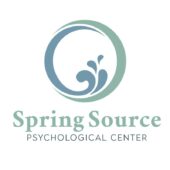
Trauma and PTSD therapists in Princeton, West Virginia WV

Michelle Peacock
Psychologist, PhD
Trauma and PTSD involve emotional, cognitive, behavioral, and physiological symptoms that interfere with functioning. CBT and biofeedback are effective interventions to trauma and PTSD.
Dr. Abrielle Conway, Rooted in Grace Psychological Services
Psychologist, Psy.D., Licensed Psychologist
I've been working with trauma survivors since prior to graduate school, beginning in 2004. While I have experience in treating a wide range of traumatic related symptoms, I've found that I'm most effective in treating first responders (healthcare workers, police officers, firefighters), ministry leaders and volunteers serving in crisis management roles, and those who've experienced single incident traumas (car accidents, medical trauma, physical assault, natural disasters). I also specialize in helping individuals who've experienced traumatic grief/loss (those who witnessed a traumatic event). I've completed training in Cognitive Processing Therapy (CPT) through the Veteran Affairs Medical Center and Eye Movement Desensitization Reprocessing Therapy (EMDR) through an EMDRIA approved trainer. I use several different approaches to prepare clients for the hard work of facing their pasts. When you're ready, we will work together to decide what treatment will be most effective for you.
SpringSource Psychological Center, PLLC
Psychologist
At SpringSource, we believe in using a combination of exposure and grounding skills-based techniques to help individuals heal from both chronic and episodic traumatic experiences. Our therapists have training in Cognitive Processing Therapy and Written Expressive Therapy as well as other exposure-based techniques.
Dr. Adam Shafer
Psychologist, Psy. D., M.A.
When the foundation of trust shaken (if not feeling broken) through experiences of trauma, the approach to restoring one's life must always be one of sensitivity, patience, and compassion. Without this, there will always be a risk that it will never feel safe enough to heal.
Karen Baumstark, Ph.D.
Psychologist, Ph.D., CMHIMP, CTACC
None of us can escape some level of trauma; inevitably, it will be a part of life. How much it affects us, however, depends on many factors including the nervous system we were born with, our outer resources, and how much relational support we receive to help us recover from the trauma. Many people do not have access to adequate resources to help them recover from trauma (and this is very subjective and personal, varying from person to person), and the trauma continues to affect them in (sometimes subtle, but still) impactful ways. If certain factors come together, PTSD may develop out of trauma. Often clients feel like they have failed because they can't completely "get over" their PTSD reactions. I have often reminded clients that PTSD is "the gift that keeps on giving". It can be very hard, perhaps impossible, to completely eradicate PTSD reactions, because the reaction is not just of the mind, it is of the whole body. My approach to helping clients with trauma and PTSD involves looking at it holistically and working to understand how the trauma changed you, your reaction across many facets of your life (thoughts, feelings, habits, behaviors, self-care or lack thereof, expectations, how you view the world), and then working on replacing what is harmful with what is helpful. The goal isn't to completely get rid of the PTSD symptoms (which is likely impossible) but rather to dramatically reduce its effect on you, so you can live your best life, and so an occasional symptom breaking through will not derail you.





